Hutchins old boys: 175 years producing ‘men of character’
World-renowned musicians and sports stars, academics, pollies and businessmen who shaped Tasmania: We’ve tracked down 95+ star students from The Hutchins School as it celebrates 175 years. SEE WHO MADE THE LIST >>
Hobart & South
Don't miss out on the headlines from Hobart & South. Followed categories will be added to My News.
- The Hutchins School reveals $7.5m Signature Building project
- “Every Hutchins student can be a champion of character”
Internationally-renowned musicians and sports stars, scholars and academics; businessmen who helped shape Tasmania — The Hutchins School’s roll call is an impressive one.
Established in 1846, Hutchins has a long tradition of developing men of character with a firm focus on the wellbeing of boys.
With Hutchins celebrating its 175th birthday on Tuesday, August 3, the Mercury takes a look at some of the highly regarded ‘men of character’ the school has produced in its history.
Hon. Jim Wilkinson
Class of ’69
Jim Wilkinson is a former elite sportsman (AFL, cricket and Royal Tennis), lawyer and politician who was an independent member of the Tasmanian Legislative Council rising to the role of President from 2013 until his retirement from the council in May 2019.
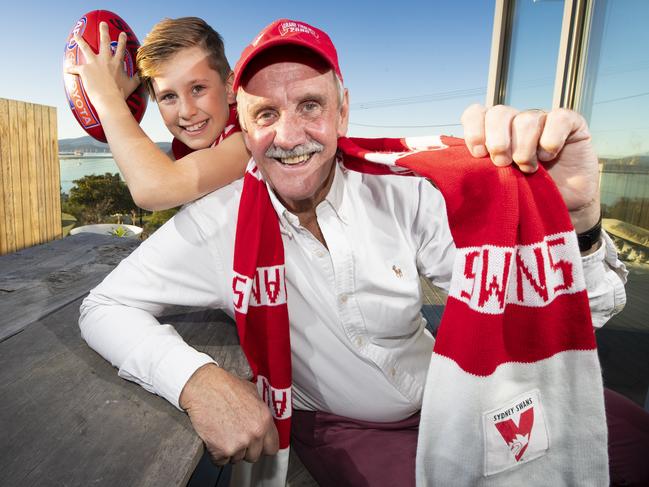
He is currently Chair of the Tasmanian Football Board.
Paul Hudson
Class of ’88
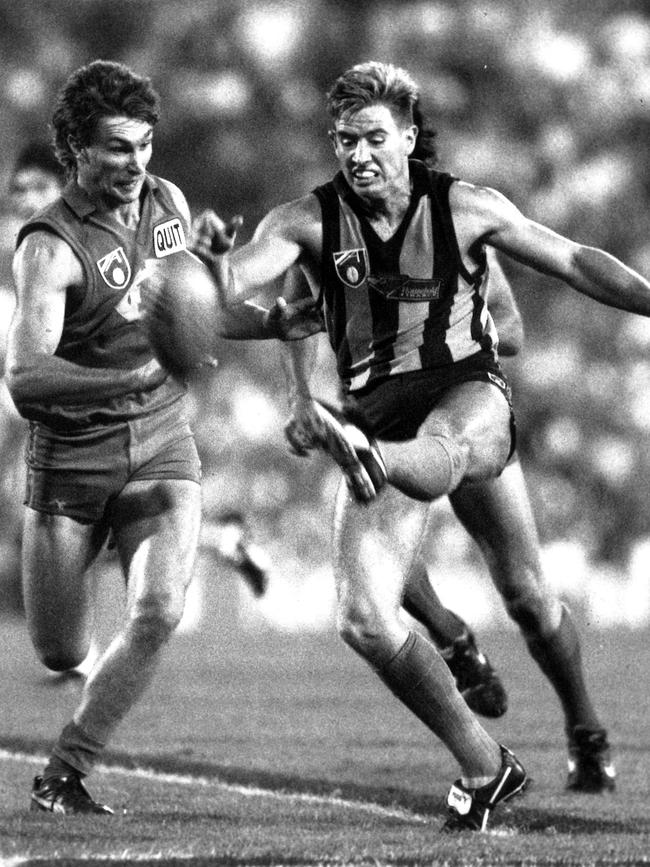
Paul Hudson is a former champion AFL player having played 245 games and kicking 479 goals.
He was a Hawthorn premiership player (1991) and that same year finished 5th in the Brownlow Medal.
Hudson achieved All-Australian selection in 1998 and was a key member of the famous 1990 Tasmanian side that defeated Victoria, kicking 2 vital goals in the last quarter.
Luke Wagner
Class of ’79
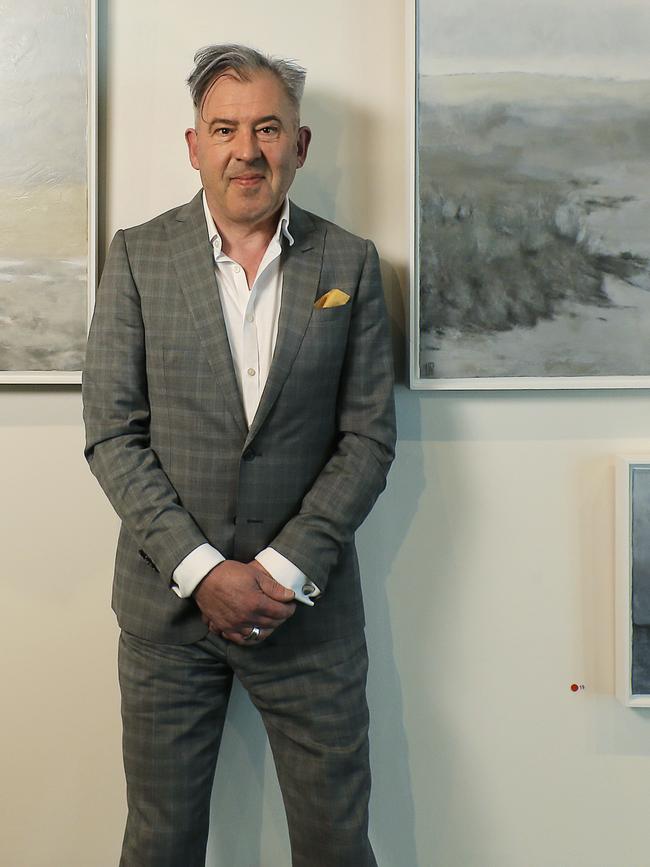
Luke Wagner is Hobart-based painter who paints Tasmanian landscapes.
He has exhibited in Hobart, Sydney, Melbourne and Brisbane and been a finalist in prestigious prizes such as Hadley’s Art Prize, Tattersall’s Art Prize, Mosman, Lloyd Rees and the Glover Art Prize.
Subsequently his work in held in many well regarded public and private collections.
Ian Salter
Class of ’60
Ian Salter qualified as an accountant and became a member of the Hobart Stock Exchange before moving to London in his early 20s where he still resides.
Salter had a long and distinguished career in investment advice and rose to Managing Director of a financial services firm (SG Investment Management Ltd) which was later acquired by Tilney Investment Management.
He served as Deputy Chairman of the London Stock Exchange from 1990 until his retirement in 2004.
Salter was previously a member of the Lloyd’s of London Authorisation Committee, the Financial Reporting Council and the Code Committee for the Take-Over Panel.
Professor Peter Dargaville
Class of ’78
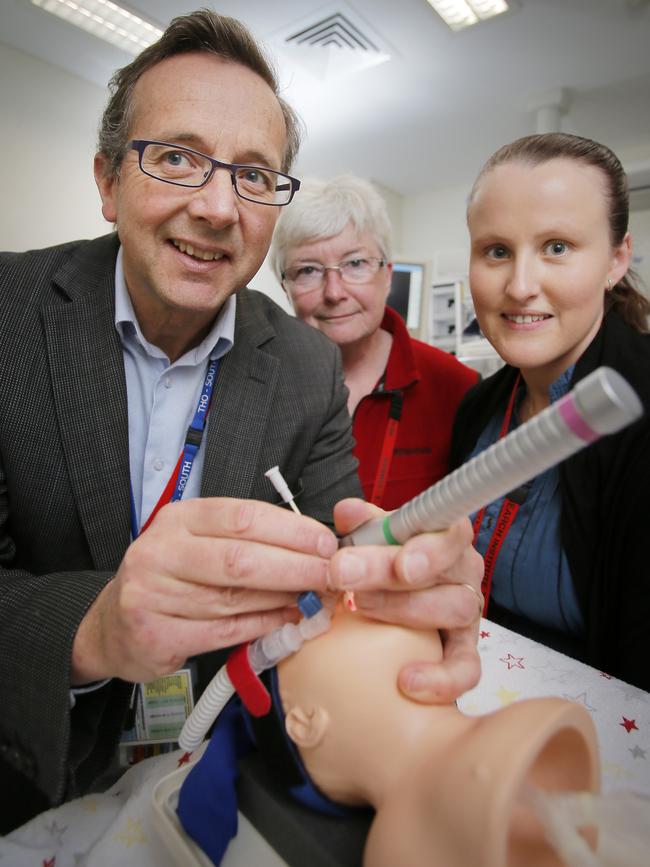
Professor Peter Dargaville completed his medical studies at UTAS prior to training in Neonatology at the Royal Children’s Hospital in Melbourne and later in San Francisco.
He has had a focus on infants with lung disease for which he was awarded an MD from the University of Melbourne in 2000.
He is currently working as a clinical-researcher at Menzies Institute, with a focus on neonatal lung disease.
Hon Will Hodgman
Class of ’86
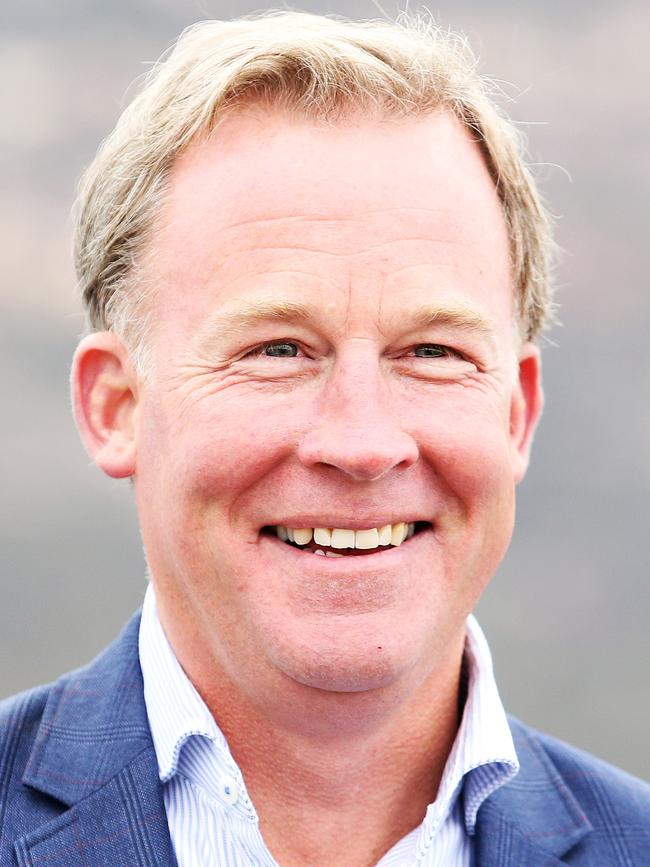
Will Hodgman was recently announced as Australia’s high commissioner to Singapore after a brief stint as Chair of the Australian Business Growth Fund.
He was previously Tasmania’s 45th Premier until his retirement from politics in January 2020.
Will was a member of the Tasmanian parliament from 2002 to 2020 and prior to that practised law.
Dr John Clark AM
Class of ’50
John Clark has had an extraordinary career in theatre becoming a member of the Order of Australia, receiving an Honorary Doctorate from the University of Tasmania and being recognised by independent Film Australia as a Living Legend.
In 1959 John was invited to teach at the National Institute of Dramatic Art (NIDA) in Sydney and was appointed Director of NIDA in 1969. In 1979 John was invited by the Premier of New South Wales to become the first Artistic Adviser to the Sydney Theatre Company. Retiring from NIDA after producing over 50 shows, John went on to produce plays in India, Singapore and China with his final production being Hamlet for the Hobart Old Nick in 2009.
Howard Hansen
Class of ’90
Howard Hansen is a 4th generation apple grower from Grove in the Huon Valley.
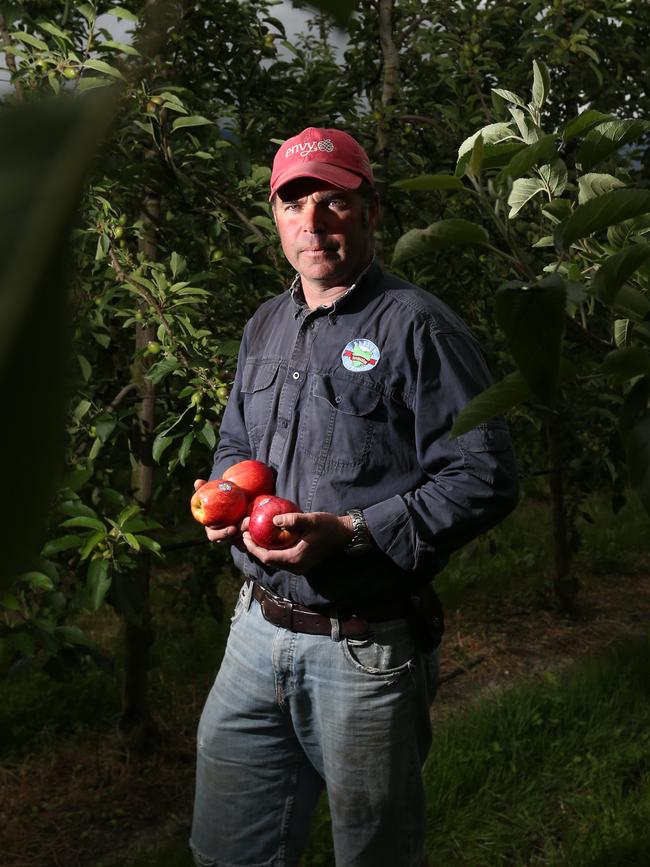
After completing his tertiary studies at Marcus Oldham College and a year in New Zealand, Howard returned to the family business and set about diversifying into cherry production and implementing new planting systems, varieties and marketing strategies.
Howard works closely with the Hansen Orchards team to constantly improve and innovate. His approach is heavily reliant on research, trusting technology and understanding best practice.
Howard has developed export markets for Australian cherries through 20 countries and has received numerous awards, including the 2020 APAL Grower of the Year.
Professor Jim Pitman
Class of ’66
Jim Pitman, a former Dux at The Hutchins School, is a Professor of Statistics and mathematics at Berkeley, University of California and has made an enormous contribution globally in the field of mathematical probability.
He has lived and worked on the west coast of the United States for over 40 years.
Greg Woolley
Class of ’91
Greg Woolley has had an extensive career in global financial and investment markets after graduating from UTAS earning a commerce and law degree.
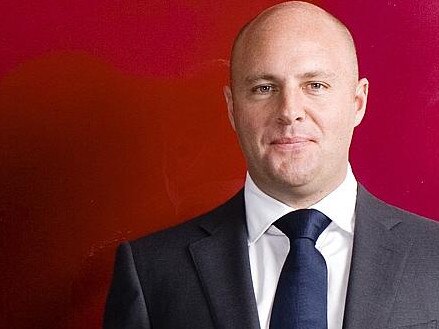
He practised Mergers and Acquisitions with Macquarie Bank and was subsequently the CEO of one of Australia’s most significant international, private investment houses for over a decade.
He is currently the Chairman of Woolley Holdings, a private finance and investment company. He has served on many public, private, Government and not for profit organisations throughout his career and he is passions include the arts and philanthropy.
Andrew Kemp AM
Class of ’54
Andrew Kemp was appointed Managing Director of Kemp & Denning Limited in 1963 and was Chairman of Directors from 1968 to 2011.
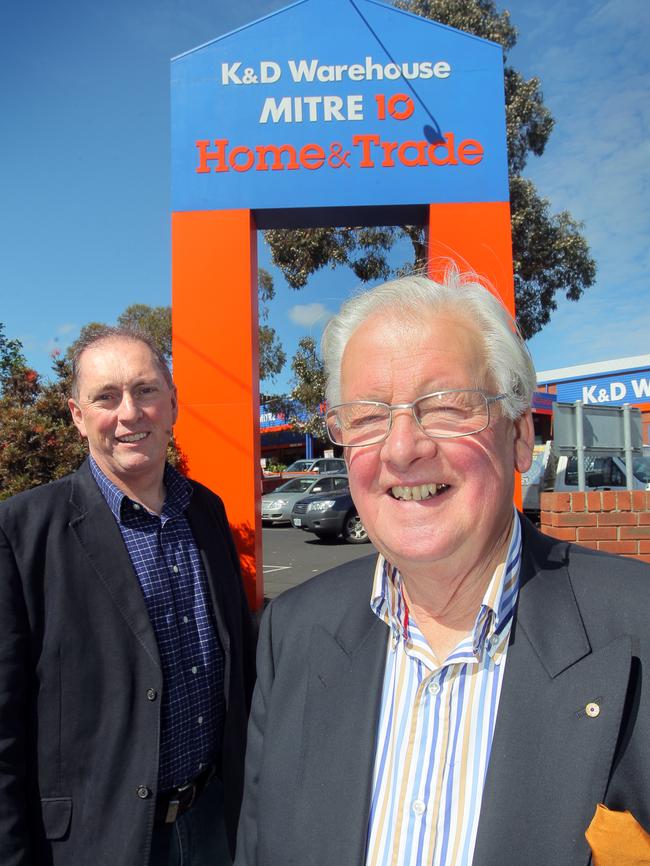
Andrew retired as a Director in 2014 and was responsible for introducing the ‘big box’ warehouse retail model to the hardware sector in Australia in 1986, which Mitre10 and later Bunnings have emulated.
He was Tasmania’s first honorary Consul for Finland and has made a huge contribution to Tasmanian business and the broader community over many decades, reflected in being made a Member of the Order of Australia.
Brodie Neill
Class of ’97
Brodie Neill completed a Masters in Furniture Design at the Rhode Island School of Design in the United States and following a successful stint working for top brands in New York, Brodie established a studio in London’s East End in 2006, applying his progressive sculptural design aesthetic to a range of objects and quickly establishing himself within the international design industry.
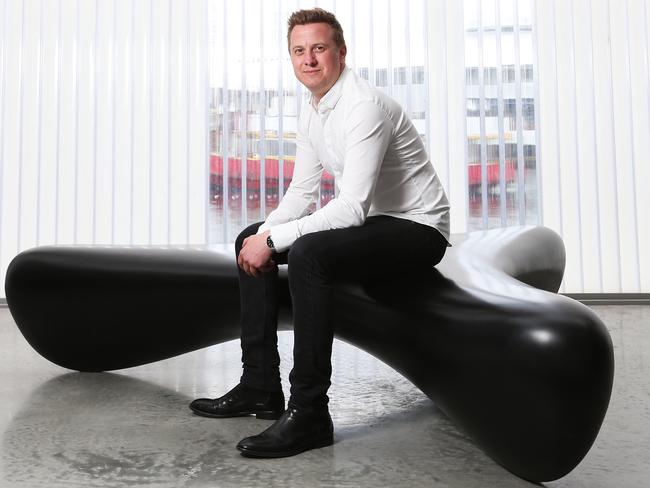
He appears in Time Magazine’s annual Design 100 featuring the most influential designs of today and has collaborated with international brands including Microsoft, Mercedes-Benz and Alexander McQueen.
His limited edition works are included in museums, galleries and private collections around the globe.
David Hales
Class of ’96
David Hales is an established hospitality entrepreneur and property investor.
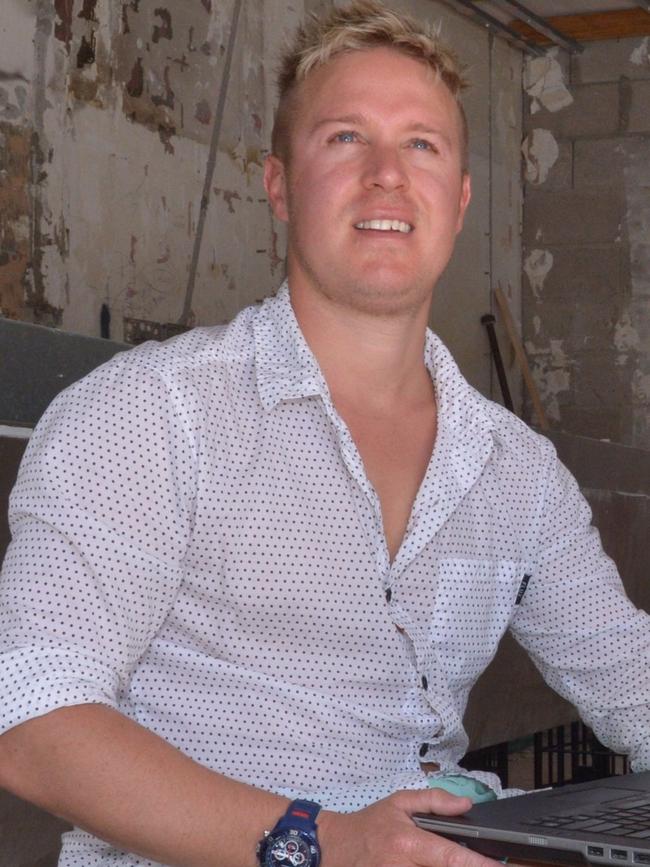
His career began when he bought a fish punt in Hobart, prior to branching out into a gourmet supermarket and various hospitality venues, including pizza restaurants, bars and nightclubs.
He later established boutique burger chain, Betty’s Burgers which he named after his late grandmother.
Dr Adam Wertheimer
Class of ’06
Adam Wertheimer is a former Junior World Rowing champion (2006).
Having graduated in medicine at UTAS in 2013, he is now completing his surgical training in orthopaedics.
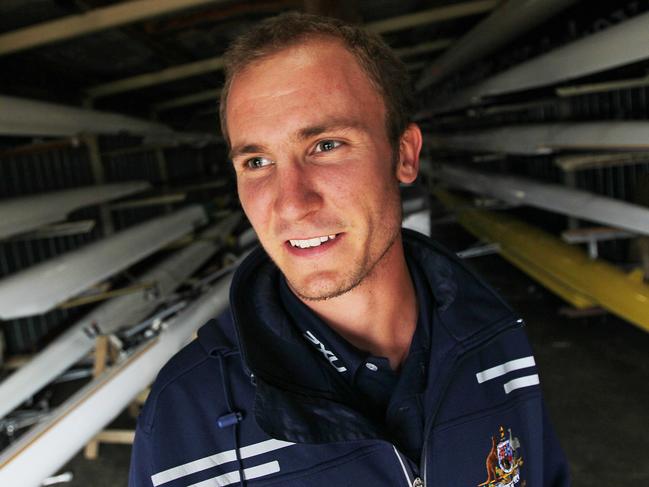
Professor Dale Fisher
Class of ’77
Dale Fisher graduated in medicine and completed his intern year in Darwin before completing specialist training at the Royal Prince Albert Hospital in Sydney.
He is now one of the world’s leading experts on COVID-19, advising the World Health Organisation’s Director General as a Professor and senior consultant in infectious diseases at Singapore’s National University Hospital.
Dale was instrumental in the successful Singaporean approach to controlling the COVID-19 pandemic
Peter Heyward
Class of ’72
Peter Heyward, a former Dux, was the ambassador to Timor Leste from January 2008 to February 2011.
He was also formerly Australia’s Ambassador to Brazil, Colombia and Venezuela and High Commissioner to Pakistan in a diplomatic career spanning 25 years.
Robert O’Connor
Class of ’01
Robert O’Connor is the 2019 Glover Prize recipient, Tasmania’s most prestigious award for landscape painting.
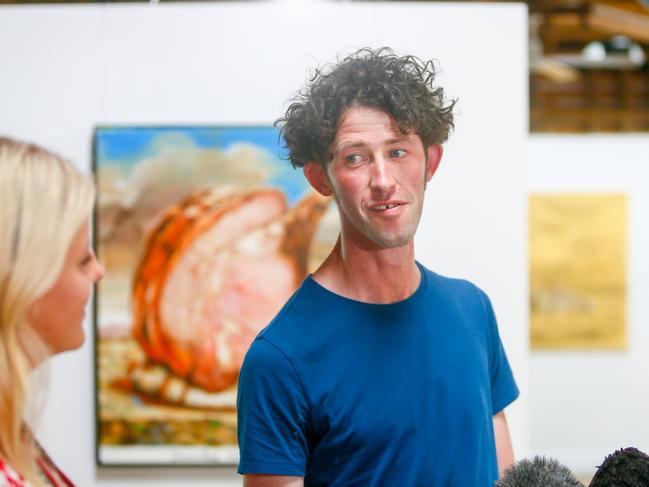
Having been selected as a finalist four times since the award’s establishment in 2004, O’Connor’s winning painting is not only creatively ambitious, but speaks to cultural and ecological concerns.
In particular the Hobart-based artist was interested in the links between European colonisation and farming, and the effects of these on Tasmania
Keith Meure
Class of ’99
Keith Meure is a leading film industry visual effects artist. He has received two Oscar nominations (Visual effects) for Mad Max Fury Road and Christopher Robins and has won an Emmy for Game of Thrones.
Other film credits include Lion, Terminator: Dark Fate, Aquaman and Ghostbusters.
Tom Holloway
Class of ’96
Tom Holloway is an Australian playwright, based in Melbourne as of May 2015.
Holloway’s plays have been performed across Australia and internationally, including Beyond the Neck at Belvoir St Theatre, Red Sky Morning at Red Stitch Actors Theatre and regional tour, and Don’t Say the Words
Hamish Peacock
Class of ’08
Hamish Peacock is an Australian track and field athlete who competes in the javelin.
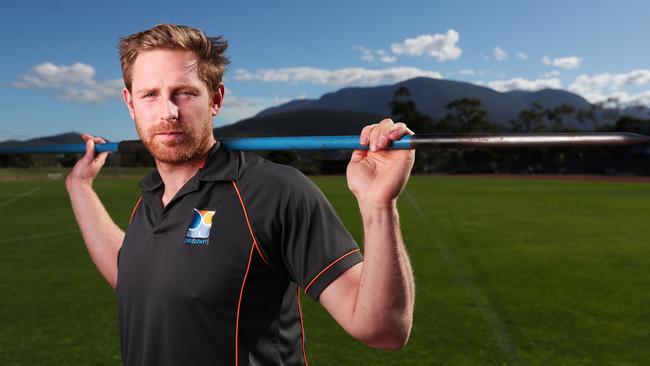
He has competed at the Commonwealth Games and the Olympics and has won gold at the Australian Championships.
Dr Bob Clifford AO
Class of ’61
Bob Clifford is an Australian shipbuilder, entrepreneur, and businessman, best known for his success in building his Incat catamaran building company into an international brand that sells wave piercing catamaran ferries all over the world including to the US military and many European ferry operators.
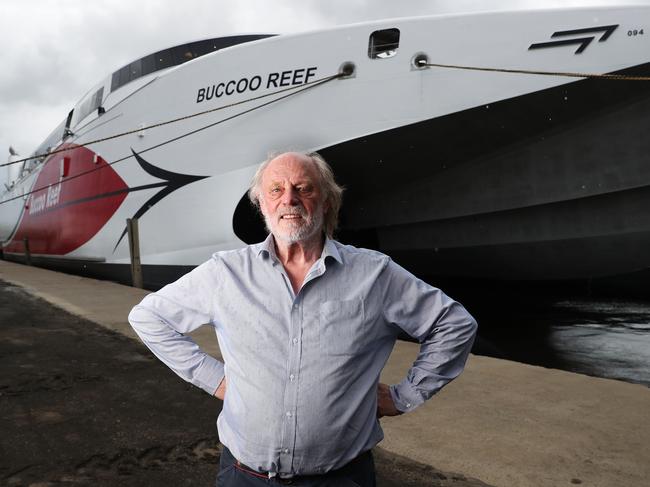
Professor Peter Newman AO
Class of ’63
Peter Newman is the Professor of Sustainability at Curtin University in Perth, Australia.
Peter is an academic who has written 20 books and over 350 papers on sustainable cities with a global reputation and has worked to deliver his ideas in all levels of government.
Peter has been an elected councillor in Fremantle, an Adviser to three Premiers in Western Australia and has been a member of the Board of Infrastructure Australia and the Prime Minister’s Cities Reference Group
Saul Eslake
Class of ’74
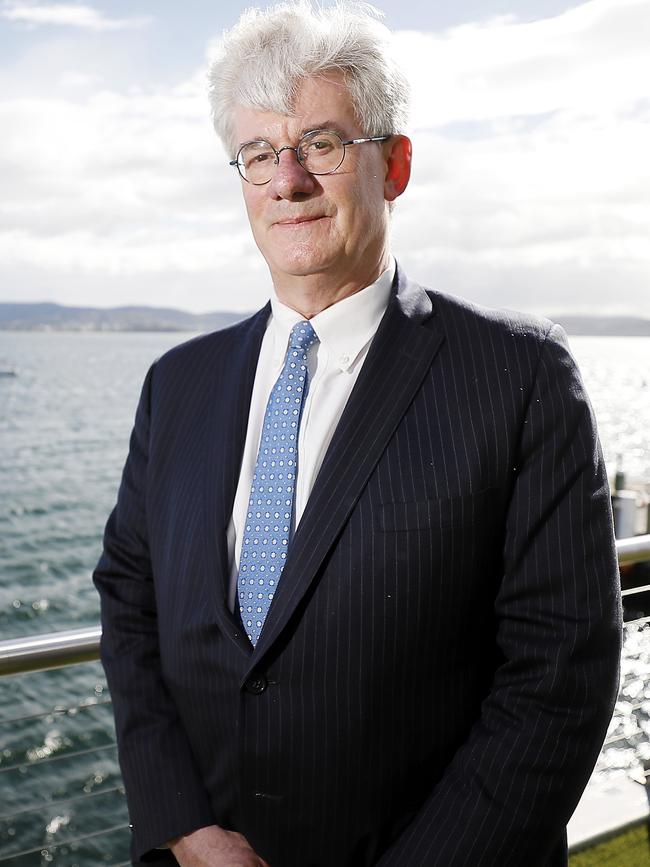
Saul Eslake has had a distinguished career in economics, holding positions at NAB, ANZ and several international banks. He has also held positions at Grattan Institute, is a regular media contributor and consults in thought leadership, strategy and analysis
Cameron Wurf
Class of ’01
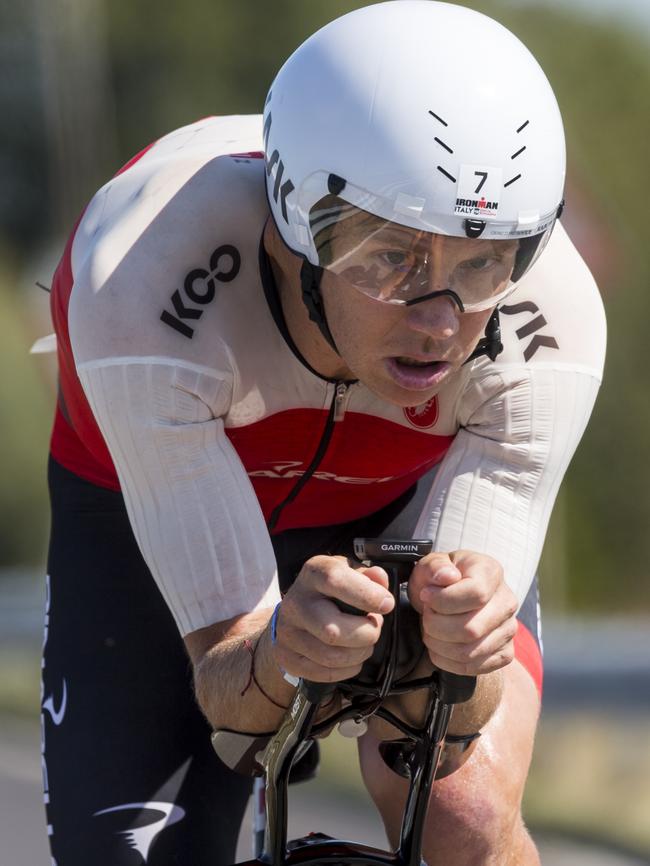
Cameron Wurf is an Australian professional triathlete and road cyclist, who currently rides for UCI WorldTeam Ineos Grenadiers.
He was a national champion and Australian representative rower – a 2004 Olympian who won a World Rowing U23 Championships title in 2003
Peter Bender
Class of ’76
Founder of Huon Aquaculture with over 28 years’ experience in fish farming operations.
Peter is responsible for the leadership, operations and strategic direction of Huon Aquaculture.
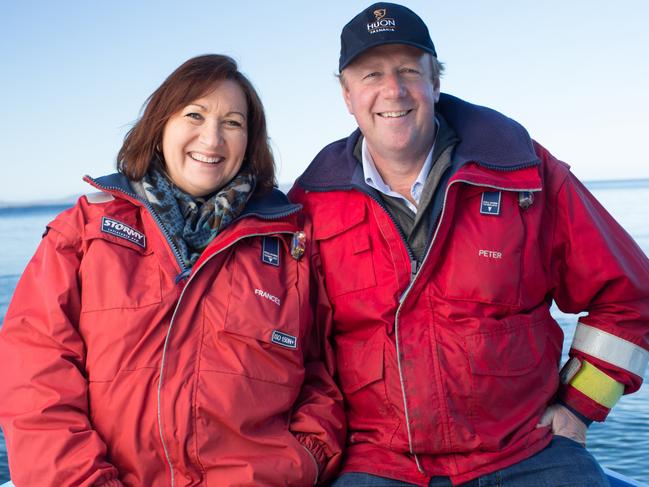
He is well recognised for farming innovation both in Australia and internationally and his extensive knowledge of aquaculture coupled with a strong continuous improvement ethic is the foundation on which Huon’s success is built.
Peter was born into a Tasmanian business family with farming and agribusiness interest and has a strong background in land-based farm management.
The principles that guide land-based farming of keeping the stock well-fed, stress-free and healthy are the central tenets that Peter has successfully transferred to aquaculture.
He was named E&Y’s Entrepreneur of the Year in the Retail, Consumer and Industrial Products category within the Southern Region division.
Scott Harris
Class of ’87
Scott Harris has held the role of Chief Executive of Beacon for the last 17 years.
In this time he’s overseen Beacon’s evolution from a Tasmanian organisation to one of the most respected and innovative in the youth employment and education sectors nationally.
Scott’s leadership has been recognised through recent study at Harvard and also won the Macquarie Group Foundation David Clarke fellowship to look at education systems across Europe. Scott has had the privilege of looking at global best practice education and employment across not only Europe but also the United States.
Andrew Hood
Class of ’66
Winemaking consultant, Andrew Hood is renowned for being responsible for the overall lift in quality of Tasmanian wines over the past 15 years.
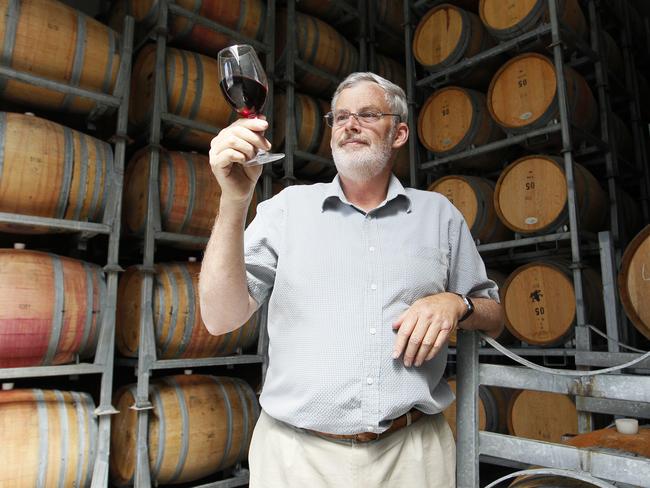
A ‘Winemaker of the Year’ finalist in 2000 and 2004, Andrew believes the fruit is the most important ingredient in winemaking. Wines made by Andrew Hood are recipients of countless trophies and gold medals.
They consistently win more than half of all awards at Tasmanian wine shows.
Hon Michael Hodgman QC AM
Class of ’55
Michael was an Australian Liberal Politician and barrister, a member of the Legislative Council, the Tasmanian House of Assembly and the Australian House of Representatives.
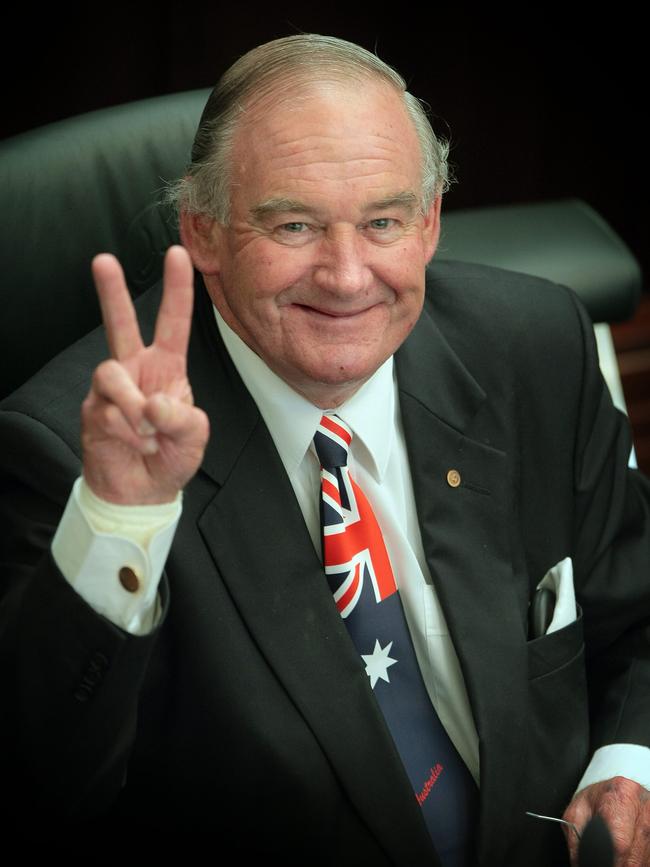
After graduation Michael was admitted to the Bar of the Supreme Court of Tasmanian and then worked as a legal officer for Hydro Tasmania. Throughout his legal career he specialised in criminal law and represented a number of high profile clients.
Michael first entered Politics in 1966 for the Tasmanian Legislative Council seat of Huon before running for the Federal electorate of Denison. In 1992 he returned to state politics in the lower house electorate of Denison which he held until 1998 when the size of parliament was reduced.
He regained the position in 2001 due to the retirement of Ray Groom. Michael was well known for his strong support for retaining Australia’s constitutional monarchy.
Michael’s son Will was Premier of Tasmania.
Will Priestley
Class of ’03
Will owns Pilgrim Coffee, Standard Burgers and Queens along with interests in other business in Hobart.
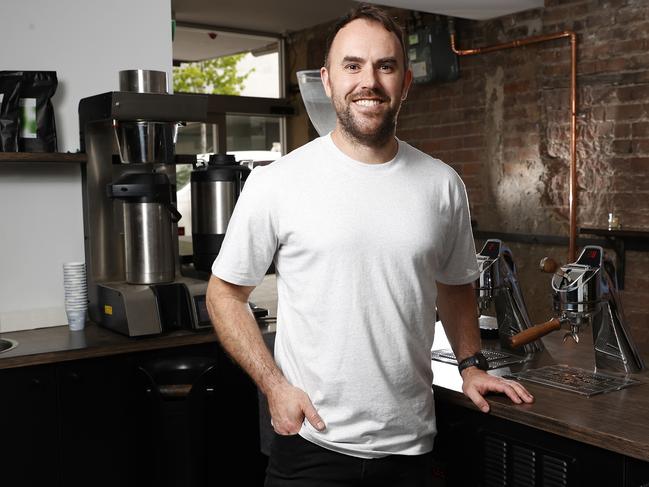
Will gave up an agricultural science degree to pursue his passion for coffee and moved back to Tassie from Melbourne a few years ago after what one can describe as an exploding coffee culture here in Hobart.
Will is no newcomer to the coffee scene and the art of the barista — he is widely known and respected throughout the industry.
He has competed in just about every barista and latte art competition throughout Australia, becoming the Australian Latte Art Champion in 2010 and placing second in the World Latte Art Championships the same year in London.
Tom Windsor
Class of ’99
Tom Windsor is dedicated to raising awareness and funds for major health issues affecting men, including depression and prostate cancer.
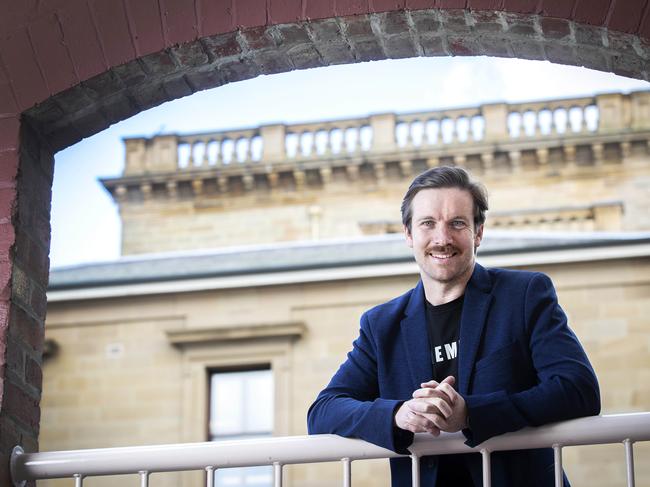
He has spent over a decade fundraising for men’s health organisations, by getting his friends together to compete in running events, including a gruelling half-marathon 1300 metres up Mt Wellington.
After losing his father to suicide when he was 23, Tom turned a family tragedy into a commitment to help other men. He founded Mobart Mo Bros, which has grown every year to become Australia’s top Movember fundraising team for the past four years.
Started as a way for his friends to show support after the loss of his father, the team of men and women are on a mission to stop so many men from dying too young.
The Mobart Mo Bros hold a range of events to engage the community – successfully attracting more than 600 registered participants and raising over $750,000 for Movember in the past 13 years.
Dr Cameron Raw
Class of ’06
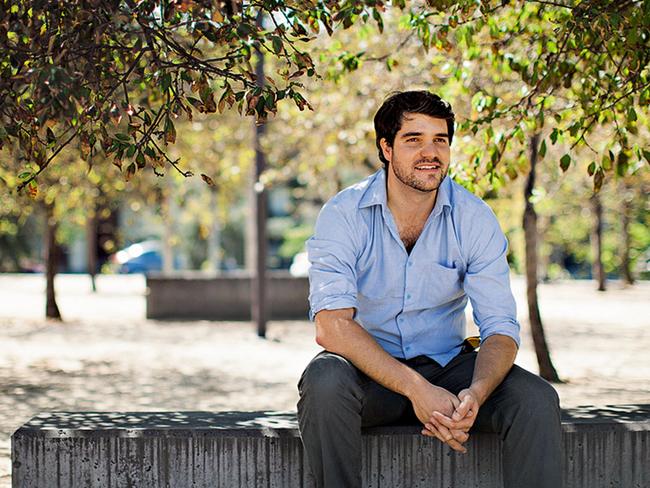
Cameron was awarded the HSOBA Young Alumni Award in 2020 which recognises his commitment and passion for veterinary medicine and working in Indigenous communities. In 2020, Cameron was awarded a Lowitja Institute Post Graduate Scholarship while completing his PhD from Melbourne University.
The Lowitja Institute is Australia’s national institute for Aboriginal and Torres Strait Islander health research, named in honour of Patron, Dr Lowitja O’Donoghue AC CBE DSG. Established in January 2010, the Lowitja Institute operates on key principles of Aboriginal and Torres Strait Islander leadership, a broader understanding of health that incorporates wellbeing, and the need for the work to have a clear and positive impact.
Craig Webb
Class of ’84
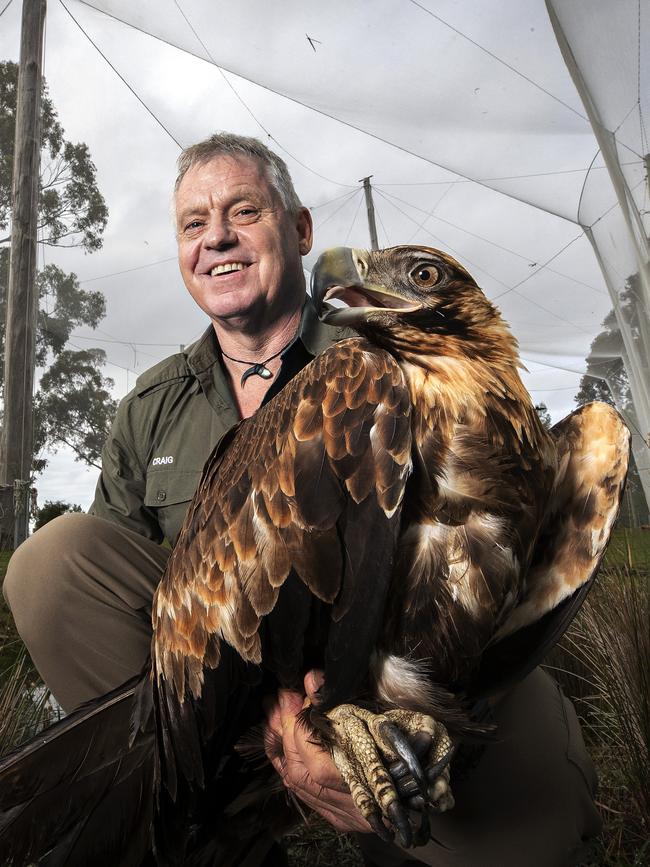
Craig Webb has worked tirelessly to build what is now the only dedicated facility in Tasmania for the rehabilitation of raptors.
His single-minded determination and commitment to Tasmania’s birds of prey has seen him construct the largest flight aviaries in Australia.
He is committed to educating children and adults alike about the threats to Tasmania’s raptors and what we can do to help them
Lou Balcombe
Class of ’04
In 2016 Lou and best mate Cody McCracken co-founded Wild Pedder which is an adventure tour company presenting the pristine wilderness of Southwest Tasmania to those who dare to venture.
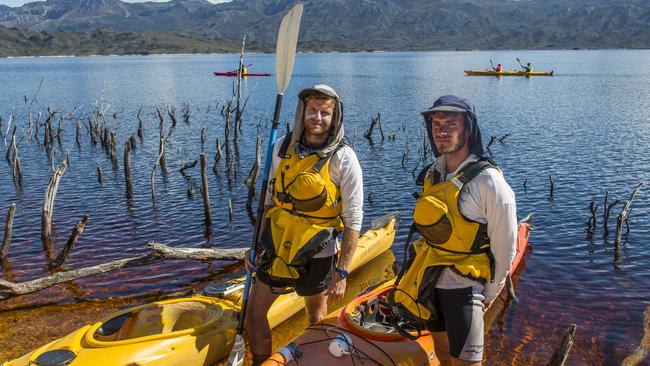
They were acknowledged for donating 5% of their net profit to the Tasmanian Land Conservancy as well as developing capabilities for disability expeditions and offering money from fundraising for emergency homeless shelters.
Hamish Lindsay
Class of ’56
Hamish Lindsay attended The Hutchins School between 1946 and 1953 when he left after the completion of his Year 10 studies.
Hamish has written a book, published by Springer in London in 2001, called Tracking Apollo to the Moon.
Hamish went on to become the Senior Technical Officer at the High Court of Australia, Canberra and retired from the position in 2001.
Tim Lyons
Class of ’96
After school, Tim joined the navy and went straight to the Australian Defence Force Academy (ADFA) in Canberra, studying at the University of NSW, graduating in 2000 and commenced training as a Naval Officer driving warships.
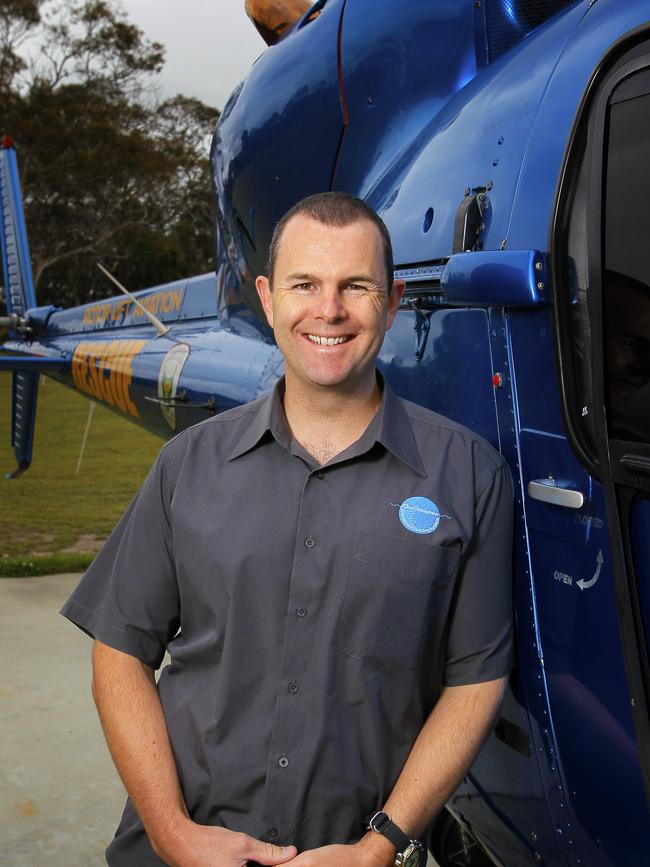
He then specialised as a Clearance Diving Officer in 2003 and went on to be deployed in a number of roles including peace keeping, disposal of WWII Japanese ordnance and mine counter measure operations.
After leaving the navy after 10 years of Service (and still active as a Naval Reservist) he worked in a number of Defence related roles prior to founding One Atmosphere (OA).
Being passionate about Defence Capability and safety, he saw areas where safety could be improved and started One Atmosphere to commercialise new technology into Defence. Tim received the Eureka prize for the work and the science that underpins the Pegasus technology.
Chris Rae
Class of ’66
Chris Rae attended The Hutchins School as a student from 1963–1966 and commenced his employment at Hutchins in 1972.
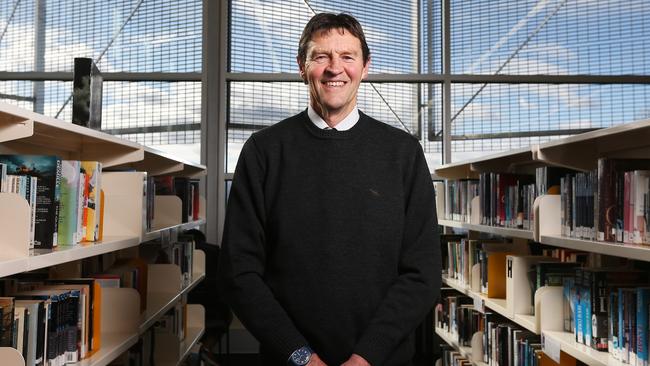
Mr Rae’s dedication to pastoral care and student wellbeing is shown not only through the many pastoral positions he held over his 43 years on staff, but also through the words written and spoken by former students and staff over the period of his impressive career.
Student experiences of Mr Rae, while personal to the individual, share a common theme of the utmost regard, respect, admiration and appreciation for his generous care, regard and belief in the potential of them as individuals.
Throughout his years at Hutchins, Mr Rae held the positions of Master of Forms IV, V and VI, House Master (Stephens House), Junior School Boarding House Master, Senior House Master (Burbury House), House Master (School House), and Head of Senior School.
He epitomised the School values of humility, kindness, courage and respect, and provided a shining example of good character to all during his time at Hutchins. He was awarded HSOBA Life Membership in 2008, the HSOBA Ivied Tower Award in 2010, and retired in 2015.”
Tom Rimes
Class of 1993
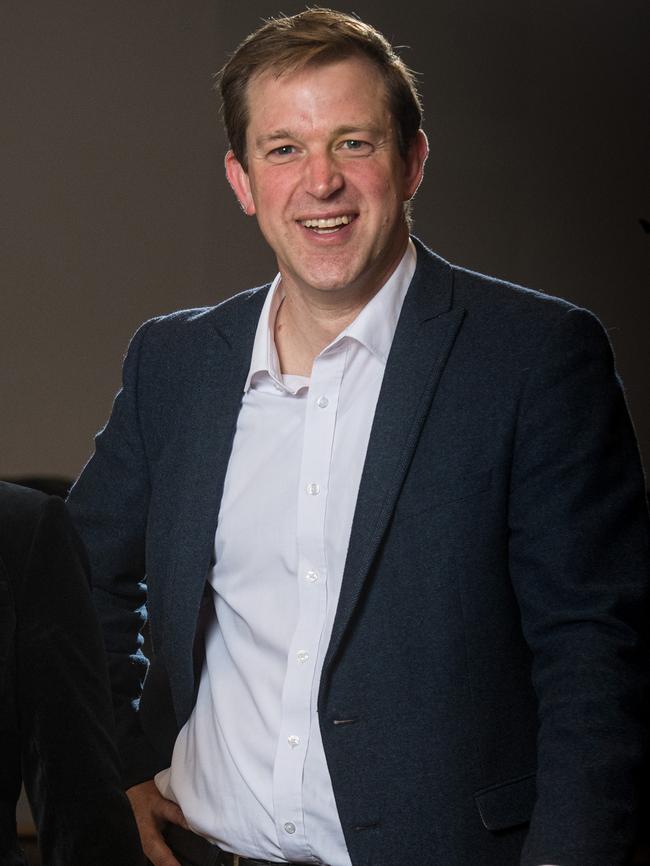
After studying in Australia and completing a Master of Orchestral Conducting Degree from the University of Memphis, Thomas Rimes worked as an orchestral conductor, opera composer and pianist for numerous symphony orchestras and opera houses around the world.
Some of them included the Washington National Opera, Opera Festival di Roma, the Opéra de Monte-Carlo, the Shanghai Conservatorium of Music and Staatstheater Kassel.
Thomas was involved in projects that have spanned a broad range of music genres – from classical opera to gospel music to Broadway shows and rock music collaborations.
A number of his original operas and musicals have been premiered in theatres in Germany and the USA.
Nick Ellsmore
Class of ‘96
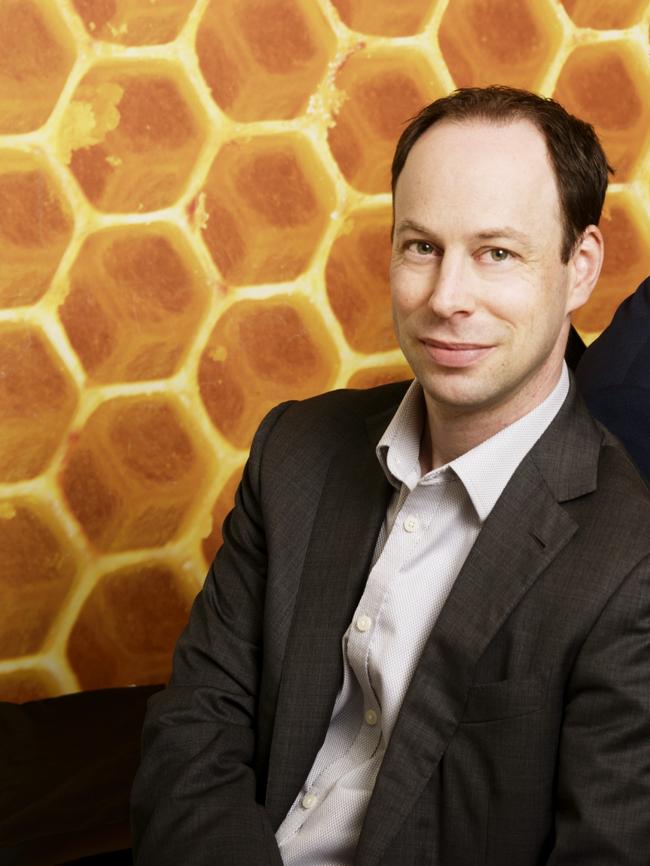
Nick Ellsmore is a Sydney-based entrepreneur who has founded and divested multiple cyber-security businesses.
He is currently director, CPS (Pacific) at Trustwave. Named the inaugural AISA Information Security Professional of the Year in 2012, Nick has served on boards and forums including the Internet Industry Association, the NATA AAC for Software Testing, UNSW Advisory Boards, and the APEC TEL Security & Prosperity Steering Group.
Dr Stephen Gumley AO
Class of ’74
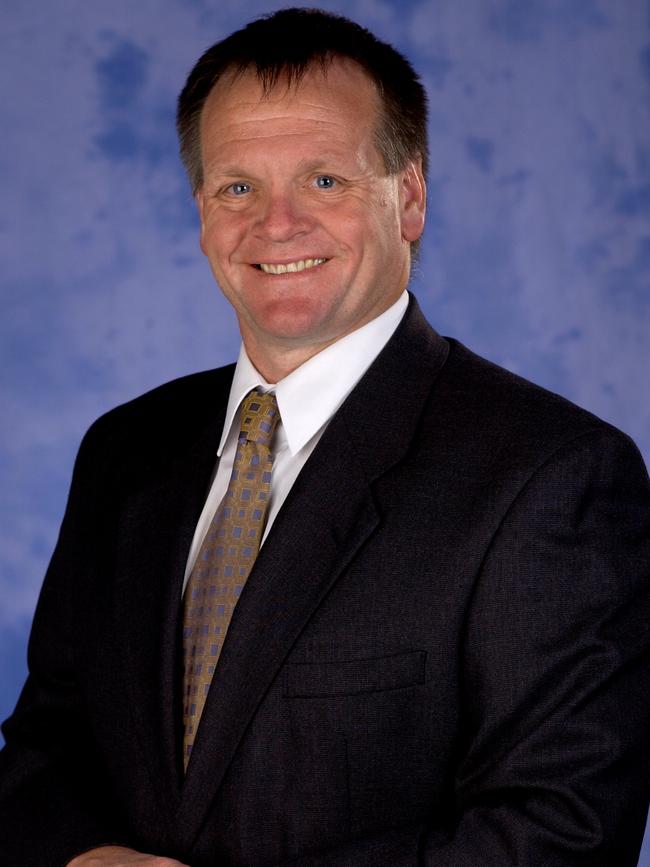
Steve Gumley, a Rhodes scholar, was awarded a Doctor of Philosophy from St Catherine’s College, Oxford University in 1982 and an MBA from the University of Tasmania in 1994. After roles as CEO of Tasmanian Technology and export manufacturer Global Lightning Technologies Group, in 2004 Gumley was appointed the inaugural CEO of the Defence Materiel Organisation (DMO) in Canberra responsible for acquiring and sustaining all Australia’s military equipment.
In 2010 he was made an Officer of the Order of Australia.
Tim Bowden AM
Class of ’54
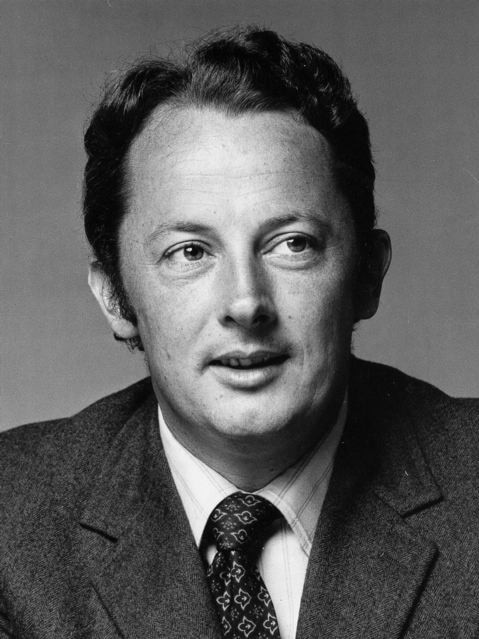
Tim Bowden AM is a former journalist, broadcaster and author whose work includes working as a foreign correspondent for the ABC in South-East Asia and North America, hosting ABC-TV’s viewer reaction program BackChat in the 1980s and 90s.
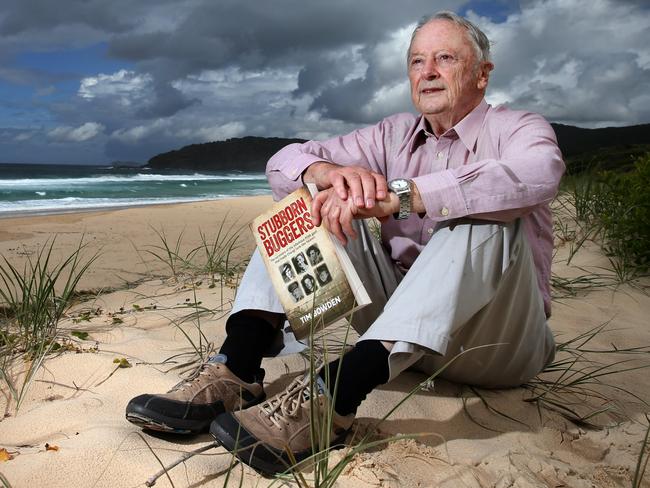
He was the first Executive Producer of the radio current affairs program PM which he began in 1969 and presented a six-part TV documentary series on Australians in Antarctica — Breaking the Ice — broadcast in 1994. Bowden was made a member of the Order of Australia in 1994.
David Brammall
Class of ’56
David Brammall was presented with the Ivied Tower Award for his service to the Hutchins School and the wider community at the Ray Vincent Lunch in 2019.
Mr Brammall commenced as a student at Hutchins in 1945 and was school captain in 1955 and 1956.
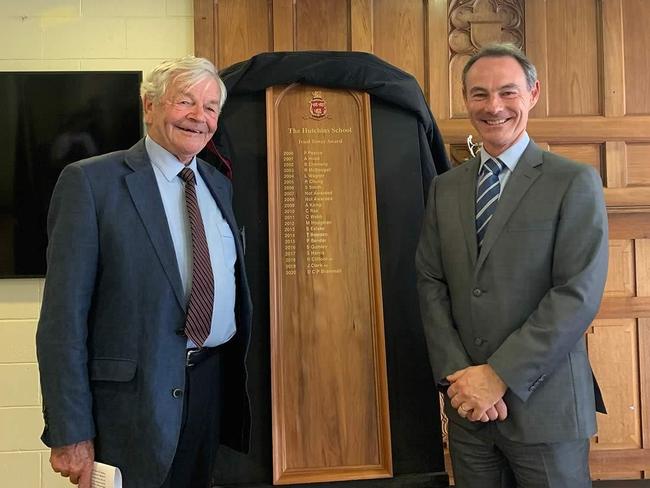
In 1973 he was appointed Deputy Headmaster and Head of Senior School at Hutchins — instrumental in establishing the co-operating schools arrangement with St Michael’s Collegiate, Fahan School and Mt Carmel College.
Mr Brammall was appointed Acting Headmaster in Term 3 of 1996 and completed his career at Hutchins as Registrar in 2000.
David coached the 1st XI for 17 years, was Master in Charge for 22 years and was very involved in hockey, athletics, football and debating. He was also the Hutchins representative for SATIS for 15 years.
Mr Brammall has served on a multitude of committees at Hutchins, including the recently instituted Over 80s Club.
John Clennett
Class of ’68
John Clennett is a successful business owner of the iconic Clennett’s Mitre 10, managing director, and renowned member of the greater Hobart community. He is also a former Australian rules Footballer, who played for Melbourne Football Club in the Victorian Football League. Demonstrating a keen and committed interest in The Hutchins School, Mr Clennett previously held the position of Chairman of the Board (1994 – 1996). He has made an enormous contribution to the school community of several decades as student, representative, parent, coach and supporter.
Tom Gibson
Class of ’00
Tom Gibson is a dual Olympic rower, representing Australia at the 2008 Beijing Olympics and the 2012 London Olympics.
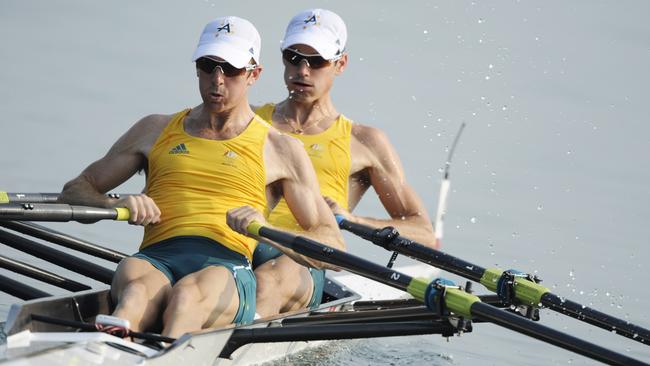
Tom won the 2011 World Championship in the Lightweight Men’s Eight in Slovenia. Tom and his wife Michelle founded Little City Group, Tasmania’s largest Airbnb and Property Management Group
Private John Hutton Bisdee and Lieutenant Guy George Egerton
Bisdee and Wylly were the first Australian-born soldiers to win the Victoria Cross for valour in the same combat on the same day (1 September 1900)
Trent Forbes
Class of ’96
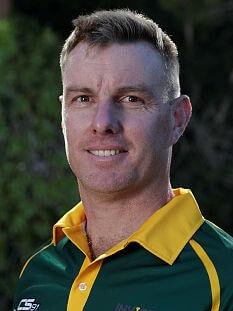
Trent Forbes joined the Australian Army in 1997 and discharged in 2016. He deployed to Timor-Leste in 2006-07 and to Afghanistan in 2009 and 2011-12.
He competed in the Invictus Games in archery, wheelchair basketball, cycling, indoor rowing, wheelchair rugby and swimming.
When asked by Defence what his greatest achievement was, Trent said: “Overcoming the challenges related to my injuries. It’s been a very long journey. I am proud to have been able to continue to live life to the fullest and be a role model for my two daughters.”
Louis Diego Bernacchi
Lieutenant Commander Louis C D Bernacchi was a distinguished Old Boy with many accomplishments; a physicist, astronomer and Antarctic expeditioner.
He joined Carstens Borchgrevink’s Southern Cross expedition (1898–1900).
The expedition was the first to spend the winter on the Antarctic continent and the first to sledge towards the South Pole.
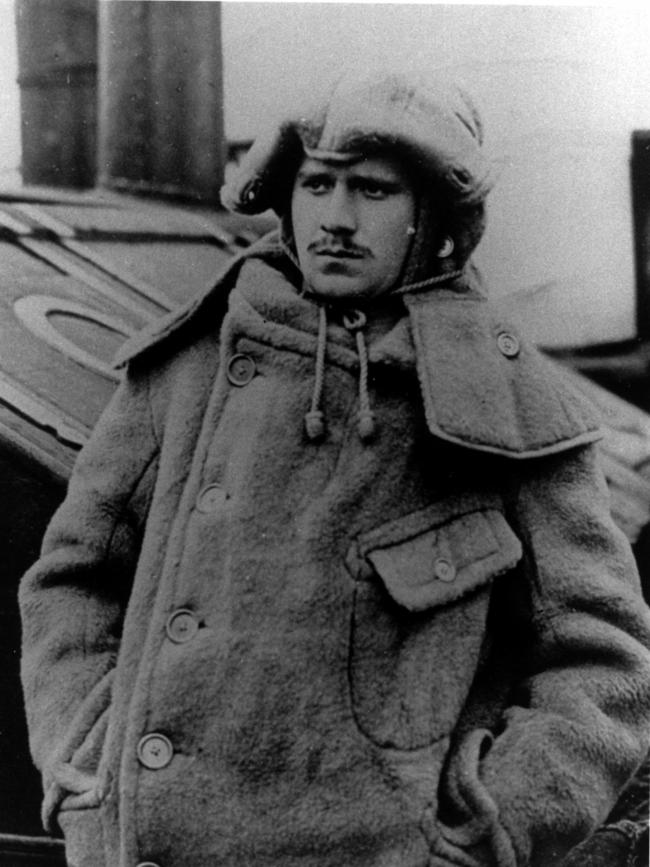
He wrote a book about the expedition – To the south polar regions: expedition of 1898-1900 – published in 1900.
He was a physicist on the Discovery expedition led by Robert Falcon Scott (1901–1904). Following the trip, he was awarded the Royal Geographical Society and King’s Antarctic Medal as well as the Légion d’honneur.
During World War I, he served in the Royal Naval Volunteer Reserve, the Admiralty and the United States navy. In 1919, he received both an Order of the British Empire and the United States navy Cross.
Louis Bernacchi remained active in scientific organisations, most notably the Royal Geographical Society, and wrote a number of books on the Antarctic. Two landmarks in Antarctica are named after him: Bernacchi Head, on Franklin Island and Bernacchi Bay, on the coast of Victoria. In 2002, the-then Premier of Tasmania, Jim Bacon, unveiled sculptures of Louis Bernacchi and fellow explorers at Sullivans Cove.
Eric Newham Waterworth
Eric Newham Waterworth (1905–90), practical engineer, invented an Automatic Record Changer at the age of twenty, and sold the patent in London. In the 1930s he began designing and making equipment for Leicester McAulay, Physics Professor at the University of Tasmania. Responding to a request from the Australian Government after the outbreak of the Second World War, the two of them agreed to try to produce optical components for gunsights. While McAulay was the man of ideas, it was Waterworth’s equipment which allowed the 200 employees at the Waterworth Annexe to make high-quality prisms with only a fortnight’s training. They later also produced photographic lenses. After the war Waterworth continued in the business of optical design and manufacture, and the Waterworth slide projector sold widely around Australia.
Sir William Lambert Dobson
William Lambert Dobson arrived in Hobart in 1834 as a baby, accompanying his English migrant parents.
He returned to England to study law then returned to Hobart in 1857, eventually becoming Chief Justice. He served as Attorney-General for three ministries, and was responsible for such reforms as the abolition of imprisonment for debt and compulsory primary education. A strong supporter of the Tasmanian Museum and Art Gallery, cricket, football and the Anglican Church, Dobson also acted as Deputy Governor, and was knighted in 1886.
Dobson was enthusiastic in promoting education. He was president of the Tasmanian Council of Education, which aimed to further secondary education by holding public examinations, which set standards and gave scholars an aim and a qualification. On the Council he was one of a group of men, including George Clarke and James Backhouse Walker, who worked hard towards the establishment of the University of Tasmania. When this occurred in 1890, Dobson, as president of the Council and an eminent public figure, was elected Chancellor of the University, although he did not have a degree himself.
As Chancellor, Dobson was hardworking and supportive of the University, but he tended to make speeches that antagonised people needlessly – attacking the Australian accent, for example. Largely a figurehead, he remained Chancellor until his untimely death in 1898. As Chairman of the central committee of the Bush Fire Relief Fund, he was visiting burnt-out districts in southern Tasmanian, where he contracted a fever that led to his death.
Denis Ashton Warner
Hutchins class of ’35
During seven decades in journalism, starting as a copyboy on The Hobart Mercury, Warner became a distinguished war correspondent and an influential interpreter of Asia.
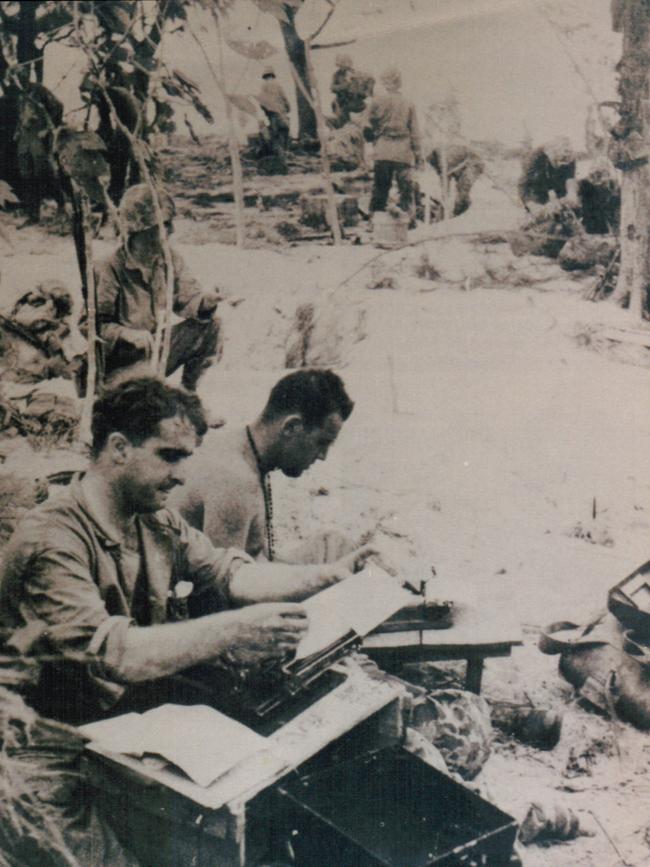
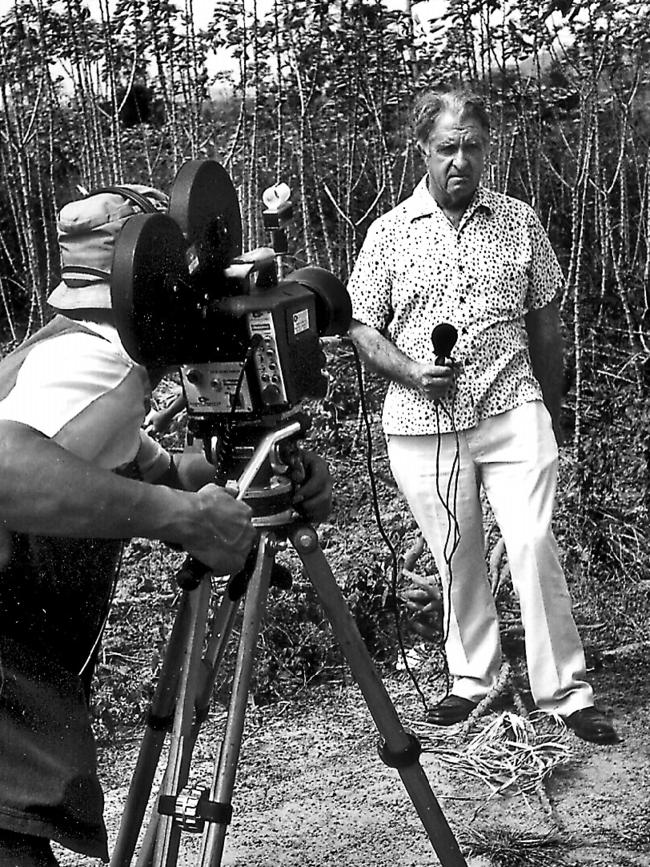
He served in the AIF early in World War II. Later, as a correspondent in the Pacific, he was aboard a British warship when it suffered a kamikaze attack.
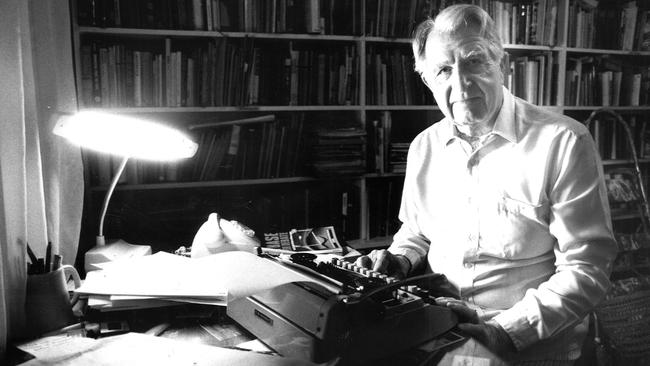
He worked for The Melbourne Herald, Reuters, the London Daily Telegraph, and The Reporter magazine.
He landed with US marines on Saipan, witnessed the devastation of Hiroshima and Nagasaki, and covered both the siege of Dien Bien Phu and the early days of the Korean War.
Charles Stanley King
The following is an excerpt from an obituary published in the Hutchins School Magazine in July, 1959.
“We regret to record the sudden death of one of our distinguished Old Boys in the person of
Charles Stanley King (1901, 1582) at his home at Montagu Bay on April 26. He was aged 69.
Born at Hobart, he entered the school at the age of 10, won the Junior and Senior Newcastle and a Junior Public Scholarship, and was prominent in sport, being a particularly good runner. Owing to certain subjects he required for matriculation being unavailable at Hutchins,
he transferred to Queen’s College in 1907, where, under special tuition from A. A. Stephens, he gained a Senior Public Scholarship to the University and won the prize for Greek.
In 1914 he graduated from Corpus Christi College, Oxford, as M.A., with Honours in Modern History. While at Corpus he rowed for his College, and had joined King Edward’s Horse, a volunteer regiment formed from overseas men resident in England.
On the outbreak of war he at once volunteered for active service, and the members of
King Edward’s Horse were eventually commissioned as officers in Kitchener’s Army.
On his return to Hobart he joined the school staff for a brief period prior to accepting the
offer of a Lectureship in Economics and History at the University in 1921. He was made an Associate Professor in 1933, and when the Chair of History was established in 1935 he became its first occupant with the status of Professor. This position he occupied until his retirement in 1956, after 36 years service during which he had also been Dean of the Faculty of Arts, Chairman of the Professorial Board, Member of the Council, and Acting Vice
Chancellor.
His funeral service was conducted by our former School Chaplain, the Rev. Charles Brammall, a very old friend of the King family, who, in a striking and moving tribute, said that Charles King would be remembered as a Christian gentleman and a man of universal charm.
“He represented a kind of old-world courtesy so precious and so fast disappearing. His outlook was a very human one — he recognised the importance of the individual personality. We thank God for his contribution to the world of intellect and of culture,” he said.
Clive Errol Lord
Clive’s short 43 years were filled with achievements; a real man of energy and enthusiasm.
He started at The Hutchins School in 1905, and was soon involved in natural history and science, encouraged by his father, Octavius Lord. He played cricket for the First XI and Football for the First XVI and was always keen to take on leadership and organisational roles. By the age of 22 he was Honorary Secretary of the Tasmanian Field Naturalists Club. He also published a guide to study Tasmanian bird life and later in life a small book on snakes in Tasmania. Clive became an architect and practised in Hobart, and was made a Fellow of the Tasmanian Institution of Architects.
In 1917 he was appointed Curator and Director of the Tasmanian Museum.
Clive felt so strongly about the preserving of nature that he was at the forefront of establishing a National Park for Tasmania, including the reservation of Cradle Mountain – Lake St Clair area. He was a founder member of the Hobart Rotary Club and Secretary for the Botanical Gardens. It comes as no surprise he was President of the Royal Australian Ornithologists Union.
Clive was a Member of the Royal Society of Tasmania, serving as Secretary for the last 15 years of his life and was presented with the Royal Society Medal, a huge honour after providing at least ten years of outstanding service and publishing at least ten important papers.
He is summed him up by a quote from John Reynolds in 1934:
“Clive Lord’s breezy, good natured personality will remain a lifelong memory to all who came in to contact with him. His many interests and enthusiasms often made him inclined to make him impatient of others of lesser warmth and energy. His bountiful fund of humour and easy companionship made him much sought after by his fellows. Clive Lord was one of those rarer individuals who cannot be judged by the niggling values of the market place.”
Tom Volkman
Class of ’02
Tom studied medicine at the University of Tasmania before undertaking his Masters of Public Health and Tropical Medicine in 2012.
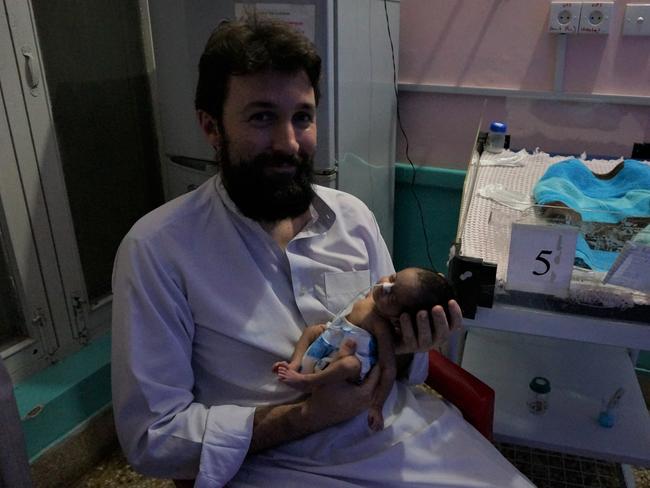
Tom then went on to study infectious diseases at the University of Oxford while he was in the UK working at Great Ormond Street Hospital in London.
Tom is a paediatrician and developed his interest in global health and the care of displaced peoples.
He became a refugee fellow at the Royal Children’s Hospital Melbourne, bringing together interests in public health, infectious diseases and care of displaced and disadvantaged patients.
Peter Clark
Class of ’06
One of the most dynamic young leaders and directors in Australia today, violinist Peter Clark is known for the energy he brings to his directing and the engaging nature of his leadership. His first performance in Carnegie Hall was with the Australian Chamber Orchestra and Andreas Scholl at the age of 20. Peter is the recipient of the 2021 Judith Neilson Scholarship for Social Innovation and Cohesion, valued at $210,000, awarded by the Monash Foundation.
Hutchins honoured a number of Old Boys with the title of Lion — an accolade for accomplished former students.
They include:
- James Maxwell Ramsay (’34) LION c1996
- Stanley Charles Burbury LION c1996
- Lyndhurst Falkiner Giblin LION c1996
- Eric John Warlow-Davies LION c1996
- Archibald McDougall LION c1996
- Leonard Nettlefold LION c1996
- Thomas Drayton Simpson(’37) LION 1998
- Stuart Crosby Walch LION 2011
- Edward Pitcairn Jones LION 2014
- Sir John George Davies Lion 2018
There are also a number of students who were Ivied Tower Recipients for their accomplishments:
- Philip Pearce (’85)
- William (Bill) Cromarty (’72)
- Robert McDougall (’83)
- Roger Chung (’95)
- Steven Smith (’76)
Hutchins has also produced a number of Rhodes Scholars over the years.
These include:
Nanak Narulla (Class of ’11) Rhodes Scholar 2021
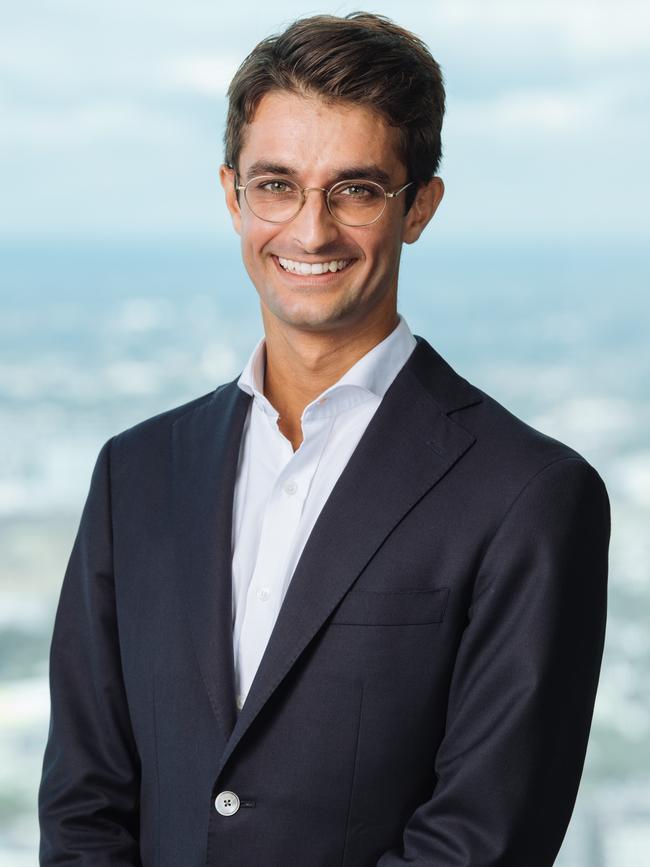
Frank Edwards (e1899) Rhodes Scholar 1909
Charles King (e1901) Rhodes Scholar 1911
Charles Rayner (e1902) Rhodes Scholar 1913
Leicester Butler (e1904) Rhodes Scholar 1916
Alan Field Payne (e1913) Rhodes Scholar 1917
Alan Clinch (e1913) Rhodes Scholar 1919
Frederick Richardson (e1913) Rhodes Scholar 1920
Edward Lilley (e1913) Rhodes Scholar 1921
John Clinch (e1915) Rhodes Scholar 1922
Leonard Huxley (e1915) Rhodes Scholar 1923
Archibald McDougall (e1913) Rhodes Scholar 1924
John Hood (e1919) Rhodes Scholar 1926
Arthur Smithies (e1918) Rhodes Scholar 1929
Edgar Spooner (e1921) Rhodes Scholar 1931
Eric Warlow-Davies (e1924) Rhodes Scholar 1932
Edward Tudor (’36) Rhodes Scholar 1940
Graeme Salmon (’51) Rhodes Scholar 1955
Robert Forage (’72) Rhodes Scholar 1976
Stephen Gumley (’74) Rhodes Scholar 1979
Michael Elias (’83) Rhodes Scholar 1988
Samuel Forbes (’05) Rhodes Scholar 2014
Harjeevan Narulla (’07) Rhodes Scholar 2016
Henry West (Class of ’11) Rhodes Scholar 2018


